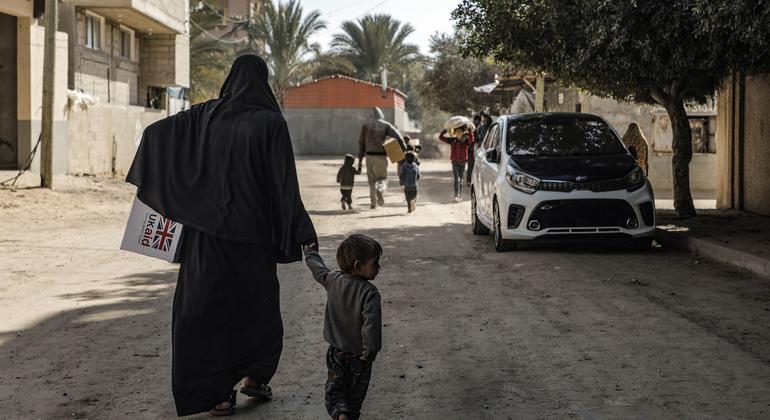KÖNIGSWINTER, Germany — Top economic officials from the world’s advanced economies moved closer toward agreement on a global rescue package for Ukraine on Thursday, with finance leaders negotiating the details of a multibillion dollar plan to keep the Ukrainian government operating amid Russia’s onslaught.
Finance ministers of the Group of 7 nations expressed optimism about the emergency financing deal on the first day of a two-day summit, where they are focused on how to provide aid to Ukraine and exert pressure on Russia while avoiding economic blowback that will slow the global economy. Officials have been consumed with how to contain rising food and energy prices that have some economists worrying about a global recession.
“We have to secure the liquidity of the Ukrainian state,” Christian Lindner, Germany’s finance minister, said as the meetings convened. “We feel responsible for the capability of the Ukrainian state and its people to defend themselves.”
The gathering on the outskirts of Bonn comes as the United States Senate is poised to pass a $40 billion aid package for Ukraine on Thursday. The Biden administration is prepared to dedicate $5 billion of those funds to help sustain Ukraine’s daily government operations for three months, and American officials have been pressing its allies to contribute another $10 billion.
The International Monetary Fund and Ukrainian officials have said the country needs $5 billion per month to continue paying government salaries and pensions and to cover other expenses.
“I am getting more optimistic,” Kristalina Georgieva, the I.M.F.’s managing director, said on the sidelines of the Group of 7 meetings, referring to the plan to fill Ukraine’s financial gap. “The issue will be the timing.”
Treasury Secretary Janet L. Yellen said this week that she would ask her Group of 7 counterparts to step up their assistance.
“Ukraine has done remarkable work to repel Russia’s invasion, but they need our help and they need it now,” Ms. Yellen said at a news conference on Wednesday.
European Union officials said this week that they were prepared to contribute 9 billion euros in economic assistance loans to Ukraine but that the nations within the E.U. would need to provide guarantees to back the program.
The terms of the aid package were a central topic of discussion at the meetings this week. Treasury Department officials have been encouraging their counterparts to offer grants to Ukraine instead of loans and are pushing for any loan terms to be as favorable as possible.
The economic diplomats are gathering at a time of rising food and energy prices that threaten to blunt global growth. Ms. Georgieva said that central banks around the world were facing a difficult task as they try to tame inflation with higher interest rates without causing downturns.
“The problem is, at what cost?” Ms. Georgieva said. The question, she said, is “how to navigate it so you don’t get into recession.”
And the challenge is getting harder, she added: “We have a crisis upon a crisis,” she said.
China represents another risk to the global economy, Ms. Georgieva said, because of the strict “zero-Covid” lockdown policies it is employing to contain the coronavirus. She suggested that China’s economic fundamentals were sound but said that policymakers were closely watching the potential impact that lockdowns are having on supply chains and inflation.
Policymakers are also discussing additional rounds of sanctions on Russia, how the European Union can wean itself off Russian energy and growing fears about global food insecurity.
The World Bank said on Wednesday that it was committing $30 billion over the next 15 months to projects that will encourage food and fertilizer production and remove barriers to trade.














![Ep266: [Lean Series] How to Plan a Responsible Fat Loss Phase Ep266: [Lean Series] How to Plan a Responsible Fat Loss Phase](https://carrotsncake.com/wp-content/uploads/2024/06/Carrots-N-Cake-VIP-Nutrition-Coaching-768x1040.jpeg)
.jpg)

Discussion about this post